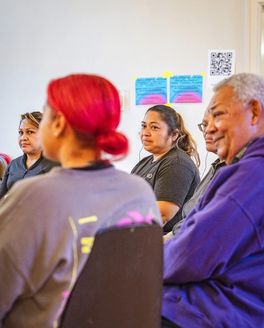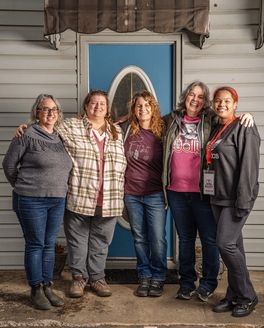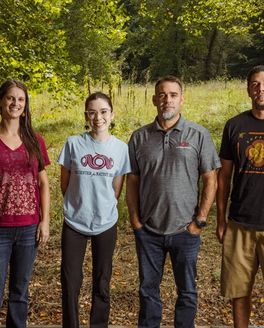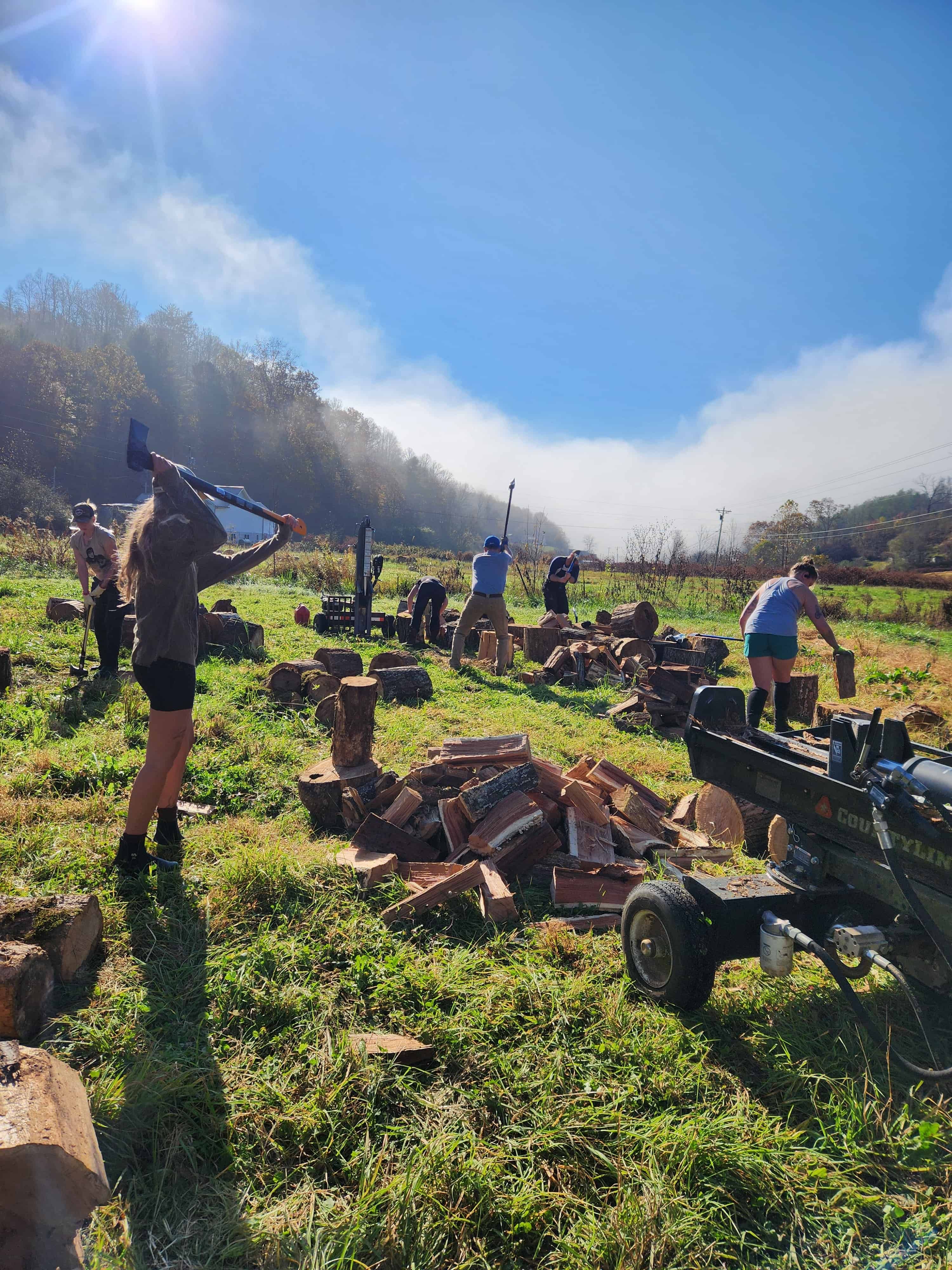
Mountain Made Mutual Aid
When Hurricane Helene devastated parts of Western North Carolina in September of 2024, entire communities were left without power, water, internet, or cell service. Resources from governments and large NGOs would eventually arrive, but it was the people already living in these mountains—those with the relationships, knowledge, and deep investment in their communities—who mobilized first. Among them was Rural Organizing and Resilience (ROAR), a grassroots group that had been organizing in Madison County for years. Because of their existing networks and infrastructure, ROAR quickly became a vital node in a decentralized relief effort—coordinating supplies, facilitating wellness checks, and getting resources to those who needed it before help from outside the region could traverse the compromised roads and highways.
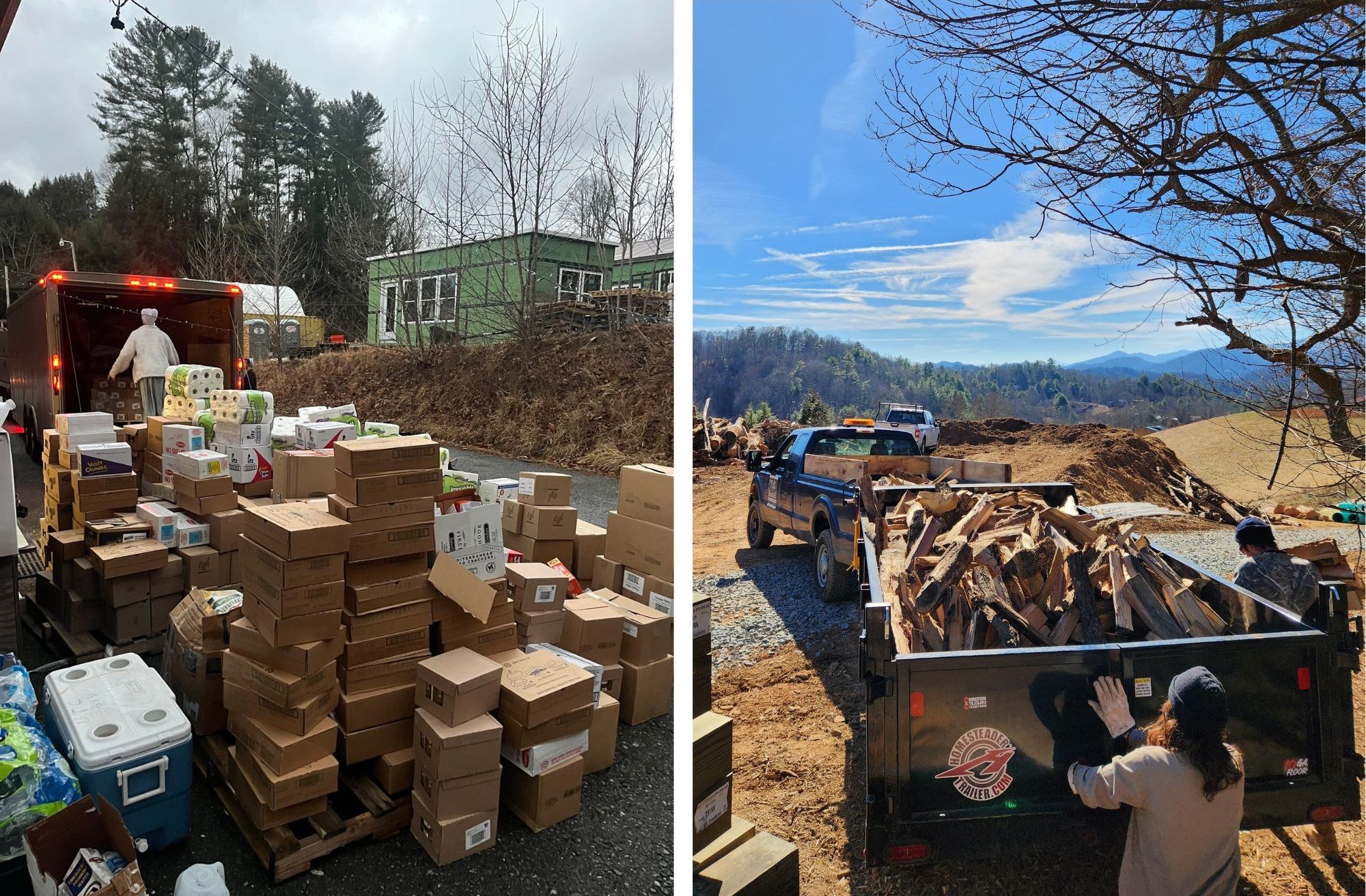
ROAR didn’t appear out of nowhere. The group was founded in 2017, following the 2016 election, by local organizers who saw the urgent need for racial justice work and mutual aid in this corner of rural Appalachia. Situated in one of the poorest and most politically neglected parts of the country, ROAR understands that the systems designed to support people often do the opposite—gatekeeping resources, reinforcing hierarchies, and leaving working-class, Black, Brown, and immigrant communities to fend for themselves. ROAR exists to right that wrong.
From their space in Marshall, ROAR runs mutual aid programs like a free firewood initiative that is inspiring similar programs in neighboring counties, seed libraries that can be accessed for free at public libraries, and native fruit and nut tree giveaways—all aimed at building local self-determination. Spurred by the acute need following Helene, they redistributed over $500,000 in direct financial aid with no application process—just trust and need. The storm didn’t create these gaps in housing, food, and transportation access; it exacerbated them. ROAR’s work persists because those inequities do.
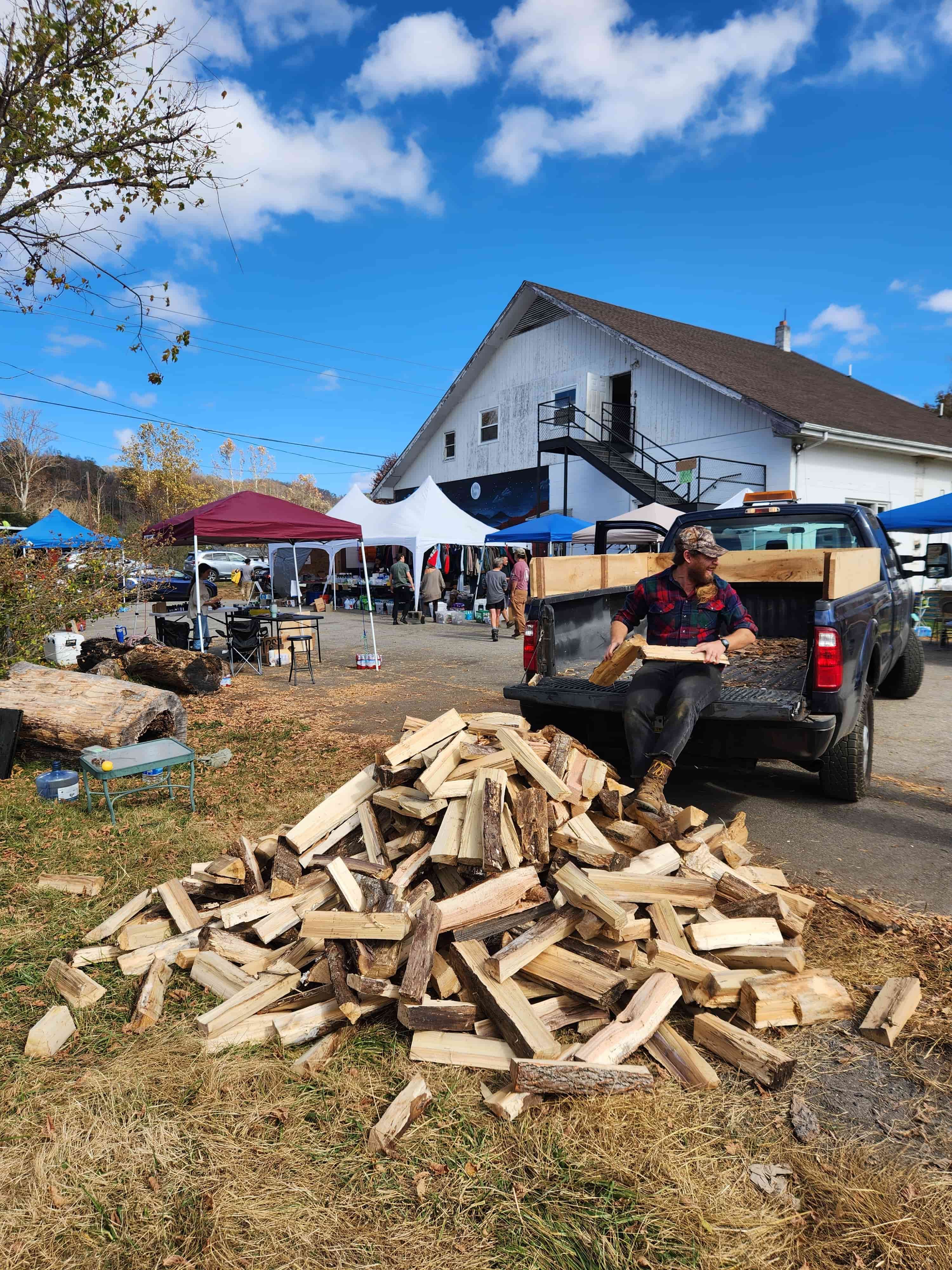
Their organizing is rooted not only in necessity, but as a product of culture. Honky Tonk Not Hate, their roving concert series, raises money and awareness for rural justice groups. In February, it raised $1,200 for Cornbread & Roses, a Jackson County collective offering sliding-scale mental health support for LGBTQ+ folks. The next show is April 4th at Mal’s in Marshall, benefitting La Esperanza, a Latina-led mutual aid group supporting immigrant families.
Looking ahead, ROAR is investing in regional solidarity - building a stronger network of rural organizing groups across WNC. These connections, forged in crisis, are now evolving into a broader ecosystem of mutual support—ready to mobilize across county lines, and rooted in collective care and shared struggle.
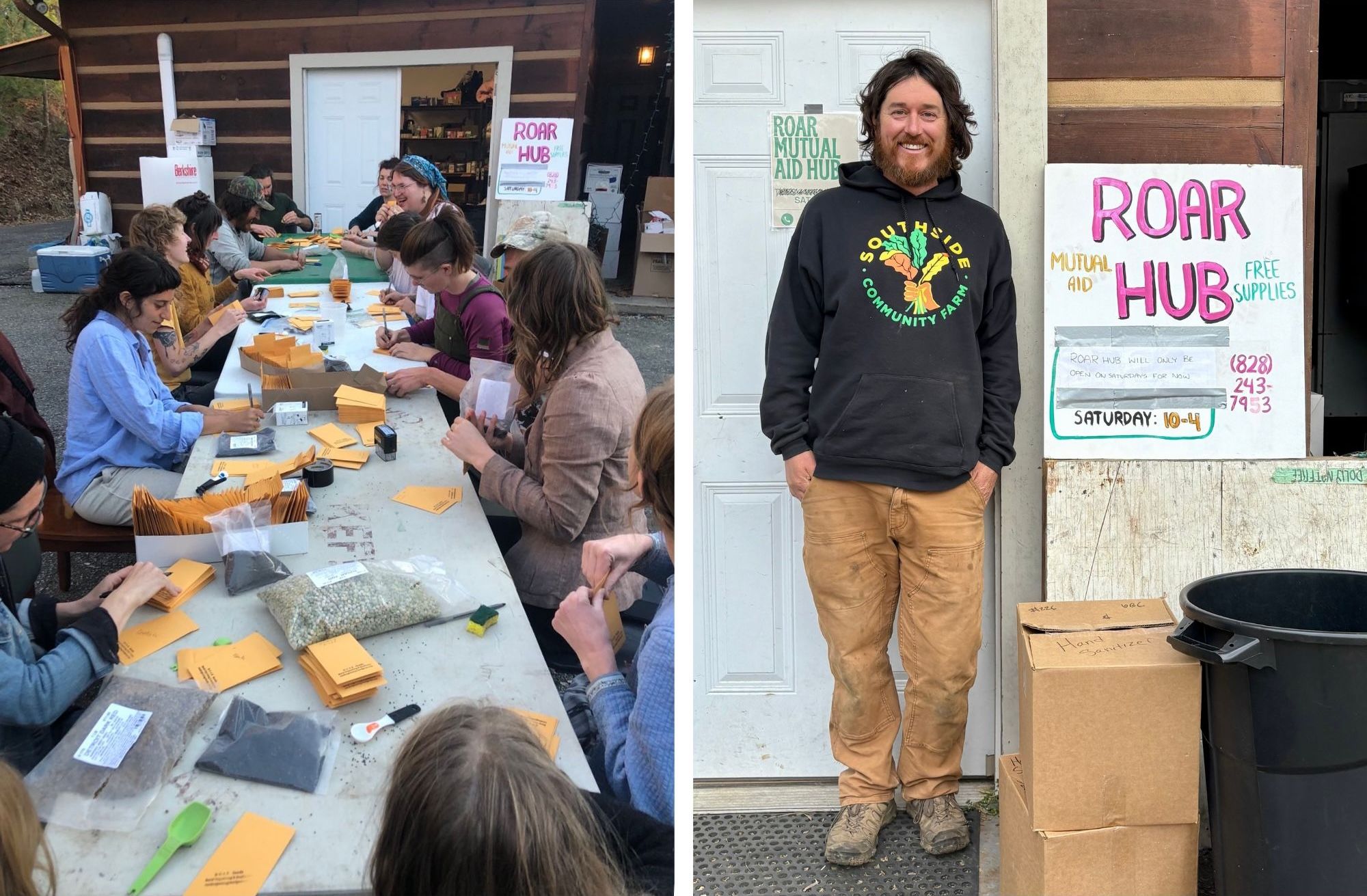
If you're looking for a blueprint of what grassroots rural organizing can look like—rooted in place, shaped by necessity, and animated by care—ROAR is it. And if you want to support a vision of rural justice that goes beyond recovery and toward a transformative shift of power, there’s no better time to get involved.
